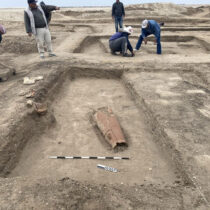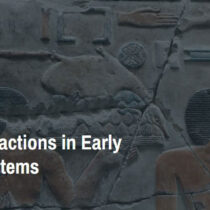In Didyma, a village of about 1200 souls in south Argolida, most of the inhabitants are kindred, because of the high percentage of endogamy and ritual parenthood with non-relatives. During the wedding feast, in which round dances are performed, the so-called “turn in dance” is observed, a term which means: a. in what turn each group of relatives will dance and b. in what turn the guests-members of the groups of relatives will participate as first dancers in each dance performed by such a group.
The “turn in dance” in the wedding fiesta is dictated by an informal but extremely strict “protocol”. Kindred is the first and major criterion in determining the turn of dancing of the groups and also that of the first dancers within the groups. However, an apparent preference for direct participants in the matrimony ritual over all the rest is made. More specifically, the choice depends on the degree of relationship the groups and individuals have with the newly married: the closer relations take always precedence. additional criteria are: a. sex as regards the family status. Thus, according to an older rule the husbands nave a lead over wives – recently this situation seems to have been reversed -, while the single females dance before the married males and their sisters, in order to become obvious that the single maidens are available for marriage: b. age – the older have the lead over the younger, and c. origin, in relation to the local community the “foreigners” follow the person who has invited them in the “turn in dance”.
The violation of the “turn in dance” during the wedding celebration is a very serious offence and leads to quarrel and fight, since it is equivalent to discredit upon the relation bonds on which the local community is primarily based. These bonds are materialized in solidarity and contribute to the social coherence. Therefore, their undisturbed validity leads to the community’s effort to preserve all the elements, which contribute to its function, well-being and perpetuation.

